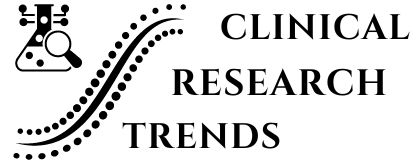Precision Medicine and Its Influence on Clinical Trial Design
In the ever-evolving landscape of healthcare, precision medicine stands at the forefront of innovation, promising to revolutionize the way we understand, diagnose, and treat diseases. Unlike traditional medical approaches that often rely on a one-size-fits-all strategy, precision medicine tailors medical treatment to the individual characteristics of each patient. This personalized approach takes into account factors such as genetics, environment, and lifestyle, aiming to deliver more effective and targeted therapies.
As precision medicine gains traction, its influence extends beyond clinical practice and into the realm of clinical trials. Traditional clinical trials, while foundational to medical research, often suffer from limitations such as high failure rates and inefficiencies. The integration of precision medicine into clinical trial design addresses these issues by improving patient stratification, enhancing treatment efficacy, and reducing adverse effects.
This blog delves into the transformative impact of precision medicine on clinical trial design. We will explore the fundamental principles of precision medicine, contrast it with traditional clinical trial methodologies, and examine the innovative trial designs that are emerging as a result. Through real-world examples and case studies, we will highlight the successes and ongoing challenges in this field. Finally, we will look ahead to future trends and innovations that promise to further refine and advance clinical research.
Join us on this journey as we uncover how precision medicine is reshaping the landscape of clinical trials, ultimately leading to more personalized, efficient, and effective healthcare solutions.
Understanding Precision Medicine
Precision medicine, also known as personalized medicine, is an innovative approach to healthcare that considers individual variability in genes, environment, and lifestyle. This contrasts with the traditional medical model, which often applies uniform treatment strategies to large populations, regardless of individual differences. The essence of precision medicine lies in its ability to tailor medical care to each patient's unique genetic makeup, health history, and specific characteristics.
The Foundations of Precision Medicine
- Genomics and Genetic Profiling:
- Genomics is the study of an individual's complete set of DNA, including all of their genes. Advances in genomic sequencing technologies have made it possible to analyze a patient's genetic code quickly and affordably. By identifying genetic mutations and variations, healthcare providers can predict disease susceptibility, understand disease mechanisms, and develop targeted therapies.
- Genetic profiling involves examining a person’s genes to identify specific markers associated with various diseases. This information helps in predicting disease risk and guiding personalized treatment plans.
- Environmental and Lifestyle Factors:
- Precision medicine also considers environmental exposures and lifestyle choices that can influence health. Factors such as diet, exercise, stress, and exposure to toxins are integrated into a comprehensive health assessment. This holistic view ensures that treatment plans address not only the biological aspects of disease but also the environmental and behavioral factors that contribute to health outcomes.
- Biomarkers:
- Biomarkers are measurable indicators of a biological condition or state. In precision medicine, biomarkers are used to diagnose diseases, predict disease progression, and monitor the effectiveness of treatments. By identifying specific biomarkers, healthcare providers can tailor treatments to target the underlying causes of a condition more precisely.
The Role of Data and Technology
- Big Data and Machine Learning:
- The vast amount of data generated from genetic profiles, electronic health records (EHRs), and wearable devices can be harnessed using big data analytics and machine learning algorithms. These technologies enable the analysis of complex datasets to uncover patterns and relationships that would be impossible to identify manually. Machine learning models can predict patient outcomes, optimize treatment plans, and identify new therapeutic targets.
- Electronic Health Records (EHRs):
- EHRs are digital versions of patients’ paper charts, providing real-time, patient-centered records that make information available instantly and securely to authorized users. EHRs facilitate the integration of genetic, environmental, and lifestyle data, providing a comprehensive view of a patient's health. This integration is crucial for the successful implementation of precision medicine.
- Wearable Devices and Health Monitoring:
- Wearable devices, such as smartwatches and fitness trackers, collect continuous health data, including physical activity, heart rate, sleep patterns, and other vital signs. This real-time data provides valuable insights into a patient’s health status and lifestyle, allowing for more precise and dynamic health management.
The Impact on Patient Care
- Personalized Treatment Plans:
- One of the most significant advantages of precision medicine is the ability to develop personalized treatment plans that are tailored to the individual needs of each patient. By considering genetic, environmental, and lifestyle factors, healthcare providers can prescribe treatments that are more likely to be effective and cause fewer side effects.
- Preventive Care:
- Precision medicine also emphasizes preventive care. By identifying genetic predispositions to certain diseases, patients can take proactive measures to mitigate their risks. For example, individuals with a family history of breast cancer might undergo more frequent screenings or take preventive medications.
- Patient Empowerment:
- Precision medicine empowers patients by involving them in their own care. By understanding their genetic makeup and health risks, patients can make informed decisions about their health and engage in shared decision-making with their healthcare providers.
Challenges and Considerations
While precision medicine offers tremendous potential, it also presents several challenges:
- Data Privacy and Security:
- The collection and analysis of genetic and health data raise significant privacy and security concerns. Ensuring that patient data is protected and used ethically is paramount.
- Access and Equity:
- There is a risk that precision medicine could exacerbate health disparities if access to genetic testing and personalized treatments is limited to those with higher socioeconomic status. Ensuring equitable access to precision medicine is a critical consideration.
- Cost:
- The cost of genetic testing and targeted therapies can be high. Balancing the cost of precision medicine with its potential benefits is an ongoing challenge for healthcare systems.
- Clinical Implementation:
- Integrating precision medicine into routine clinical practice requires significant changes in healthcare infrastructure, provider education, and clinical workflows. Ensuring that healthcare providers are equipped to interpret genetic data and implement personalized treatments is essential for the success of precision medicine.
In summary, precision medicine represents a paradigm shift in healthcare, moving from a one-size-fits-all approach to a more individualized model of care. By leveraging advancements in genomics, data analytics, and technology, precision medicine aims to deliver more effective and targeted treatments, improve patient outcomes, and enhance the overall quality of care. As we continue to explore the potential of precision medicine, its integration into clinical trial design promises to further advance medical research and drive innovations in healthcare.
The Traditional Clinical Trial Design
Traditional clinical trials have been the cornerstone of medical research for decades, providing a structured and systematic approach to evaluating the safety and efficacy of new treatments, drugs, and medical devices. These trials are essential for translating scientific discoveries into clinical applications, ensuring that new therapies are both effective and safe for patient use. Understanding the structure and methodology of traditional clinical trials is crucial for appreciating how precision medicine is transforming this field.
Phases of Clinical Trials
- Phase I Trials:
- Objective: The primary goal of Phase I trials is to assess the safety and tolerability of a new treatment or drug. These trials are typically the first time a new therapy is tested in humans.
- Participants: Phase I trials involve a small number of healthy volunteers or patients, usually between 20 to 100 individuals.
- Methods: Researchers focus on determining the appropriate dosage range and identifying any potential side effects. This phase involves close monitoring of participants to ensure their safety.
- Phase II Trials:
- Objective: Phase II trials aim to evaluate the efficacy of the treatment and further assess its safety. This phase helps determine whether the therapy has the desired effect on the disease or condition being studied.
- Participants: These trials involve a larger group of participants, typically between 100 to 300 patients who have the condition the treatment is meant to address.
- Methods: Researchers continue to monitor for side effects and begin to gather preliminary data on the treatment's effectiveness, often using placebo or standard treatment groups for comparison.
- Phase III Trials:
- Objective: The goal of Phase III trials is to confirm the treatment's efficacy, monitor side effects, and compare it to standard or placebo treatments. This phase provides the comprehensive data needed for regulatory approval.
- Participants: Phase III trials involve a large number of participants, ranging from several hundred to several thousand.
- Methods: These trials are typically randomized and controlled, with participants assigned to receive either the new treatment, a placebo, or the standard treatment. Researchers collect detailed data on the treatment's effectiveness and side effects over an extended period.
- Phase IV Trials:
- Objective: Also known as post-marketing surveillance trials, Phase IV trials occur after a treatment has been approved for public use. The primary aim is to gather additional information on the treatment's long-term safety and effectiveness.
- Participants: These trials involve a broad and diverse population to monitor the treatment's performance in real-world settings.
- Methods: Researchers continue to collect data on side effects, long-term benefits, and any new issues that arise with widespread use.
Key Elements of Traditional Clinical Trial Design
- Randomization:
- Purpose: Randomization ensures that participants are assigned to treatment groups in an unbiased manner, reducing the risk of confounding variables and bias.
- Methods: Participants are randomly assigned to different groups, such as the experimental treatment group, placebo group, or standard treatment group.
- Blinding:
- Single-Blind Trials: In single-blind trials, participants do not know which treatment they are receiving, but the researchers do. This helps prevent participant bias.
- Double-Blind Trials: In double-blind trials, neither the participants nor the researchers know which treatment each participant is receiving. This method minimizes both participant and researcher bias.
- Control Groups:
- Purpose: Control groups provide a baseline for comparison, helping researchers determine whether the new treatment is more effective than existing treatments or a placebo.
- Types: Control groups can receive a placebo, no treatment, or the current standard treatment for the condition being studied.
- Endpoints:
- Primary Endpoints: These are the main outcomes that researchers aim to measure to determine the treatment's effectiveness. Examples include overall survival rates, reduction in symptoms, or improvement in quality of life.
- Secondary Endpoints: These are additional outcomes that provide more information about the treatment's effects, such as changes in biomarkers, side effects, and patient-reported outcomes.
- Sample Size and Power:
- Sample Size: Determining the appropriate sample size is crucial for ensuring that the trial has enough power to detect a significant effect of the treatment. Too small a sample size may fail to demonstrate the treatment's effectiveness, while too large a sample size may be unnecessary and resource-intensive.
- Power: The power of a trial is the probability that it will detect a treatment effect if one truly exists. Researchers aim for a high power (typically 80% or higher) to minimize the risk of Type II errors (false negatives).
Challenges of Traditional Clinical Trials
- Heterogeneous Populations:
- Traditional clinical trials often involve diverse populations with varying genetic backgrounds, health conditions, and lifestyle factors. This heterogeneity can make it challenging to identify the specific factors that influence treatment outcomes.
- High Costs and Time-Consuming:
- Conducting large-scale, multi-phase clinical trials is expensive and time-consuming. The process from initial testing to regulatory approval can take many years and require substantial financial investment.
- Limited Applicability:
- The results of traditional clinical trials may not always be applicable to individual patients due to variations in genetics, environment, and lifestyle. This limitation underscores the need for more personalized approaches to treatment.
- Participant Recruitment and Retention:
- Recruiting and retaining participants for clinical trials can be difficult, especially for rare diseases or conditions. Ensuring a representative sample and maintaining participant engagement are ongoing challenges.
The Need for Innovation
Given these challenges, there is a growing recognition of the need for more innovative approaches to clinical trial design. Precision medicine offers a promising solution by tailoring treatments to individual patients based on their unique characteristics. By integrating genetic, environmental, and lifestyle data, precision medicine has the potential to enhance the efficiency, effectiveness, and relevance of clinical trials.
In the next sections of this blog, we will explore how precision medicine is influencing clinical trial design, the key components of precision medicine trials, and real-world examples of how these innovative approaches are transforming medical research. We will also discuss the challenges and considerations associated with precision medicine in clinical trials and look at future trends and developments in this rapidly evolving field.
The Shift Towards Precision Medicine in Clinical Trials
The traditional "one-size-fits-all" approach to clinical trials is increasingly being challenged by the advent of precision medicine. Precision medicine, also known as personalized medicine, focuses on tailoring medical treatment to the individual characteristics of each patient. This approach leverages advances in genomics, molecular biology, and data analytics to provide more effective and targeted therapies. The shift towards precision medicine in clinical trials represents a significant evolution in the way medical research is conducted, promising to enhance the accuracy, efficiency, and relevance of clinical studies.
Key Drivers of the Shift
- Advancements in Genomics and Molecular Biology:
- The Human Genome Project and subsequent genomic research have provided a wealth of information about the genetic basis of diseases. Understanding the genetic variations that contribute to disease susceptibility, progression, and response to treatment allows researchers to design more targeted and effective therapies.
- Technological Innovations:
- High-throughput sequencing technologies, bioinformatics tools, and data analytics platforms have revolutionized the ability to analyze large datasets. These technologies enable researchers to identify biomarkers, genetic mutations, and molecular pathways that are critical for disease development and treatment response.
- Increasing Understanding of Disease Heterogeneity:
- Diseases such as cancer, diabetes, and cardiovascular disorders are not single, uniform entities but rather a collection of subtypes with distinct genetic and molecular characteristics. Precision medicine recognizes this heterogeneity and aims to provide treatments that are specifically tailored to the unique profile of each disease subtype.
- Patient-Centric Approach:
- Precision medicine places the patient at the center of care, focusing on individual variability in genes, environment, and lifestyle. This approach not only aims to improve treatment outcomes but also enhances patient satisfaction and engagement by providing therapies that are more likely to be effective for each individual.
- Regulatory Support and Incentives:
- Regulatory agencies such as the U.S. Food and Drug Administration (FDA) and the European Medicines Agency (EMA) are increasingly recognizing the value of precision medicine. They are developing guidelines and frameworks to support the integration of precision medicine into clinical trials, providing incentives for the development of targeted therapies.
Key Components of Precision Medicine Trials
- Biomarker Identification and Validation:
- Biomarkers are measurable indicators of biological processes, disease states, or treatment responses. Precision medicine trials often involve the identification and validation of biomarkers that can predict which patients are most likely to benefit from a specific treatment. This process involves extensive laboratory research, clinical validation, and the development of reliable assays for biomarker measurement.
- Stratified and Adaptive Trial Designs:
- Precision medicine trials frequently use stratified or adaptive designs to account for patient heterogeneity. Stratified trials involve dividing patients into subgroups based on specific biomarkers or genetic characteristics and then evaluating the treatment within each subgroup. Adaptive trials, on the other hand, allow for modifications to the trial design based on interim data, such as adjusting dosages, adding new treatment arms, or changing patient selection criteria.
- Genomic and Molecular Profiling:
- Genomic and molecular profiling involves analyzing patients' genetic and molecular data to identify specific mutations, gene expression patterns, and molecular pathways that are relevant to the disease and its treatment. This information is used to guide patient selection, treatment assignment, and monitoring of treatment response.
- Real-World Data Integration:
- Precision medicine trials often incorporate real-world data from electronic health records (EHRs), patient registries, and wearable devices to provide a more comprehensive understanding of treatment effects in diverse populations and real-world settings. This approach enhances the generalizability and applicability of trial results.
- Patient-Derived Models and Organoids:
- Patient-derived models, such as xenografts and organoids, are increasingly used in precision medicine trials to evaluate treatment responses in a more physiologically relevant context. These models are created from patients' own tissues or cells and can mimic the complexity of human diseases more accurately than traditional cell lines.
Real-World Examples of Precision Medicine in Clinical Trials
- Targeted Cancer Therapies:
- Example: The use of targeted therapies such as imatinib (Gleevec) for chronic myeloid leukemia (CML) and trastuzumab (Herceptin) for HER2-positive breast cancer are prime examples of precision medicine. These therapies are designed to target specific genetic mutations or overexpressed proteins that drive cancer growth, leading to improved treatment outcomes and reduced side effects.
- Impact: Targeted therapies have revolutionized cancer treatment by providing more effective and less toxic options for patients with specific genetic profiles. The success of these therapies has paved the way for the development of numerous other targeted treatments for various cancers.
- Pharmacogenomics in Cardiovascular Disease:
- Example: Pharmacogenomic testing for the CYP2C19 gene variant is used to guide the use of antiplatelet therapy with clopidogrel (Plavix) in patients undergoing percutaneous coronary intervention (PCI). Patients with certain genetic variants are less likely to benefit from clopidogrel and may require alternative therapies.
- Impact: Pharmacogenomic testing improves patient outcomes by ensuring that individuals receive the most appropriate and effective therapy based on their genetic profile, reducing the risk of adverse events and treatment failures.
- Precision Medicine for Rare Diseases:
- Example: The development of enzyme replacement therapy for patients with specific lysosomal storage disorders, such as Gaucher disease and Fabry disease, is based on understanding the underlying genetic mutations and enzyme deficiencies. These therapies provide targeted treatment options for patients with rare genetic disorders.
- Impact: Precision medicine has significantly improved the quality of life and prognosis for patients with rare diseases, providing effective treatments where none previously existed.
The Impact of Precision Medicine on Clinical Trial Design
The shift towards precision medicine is fundamentally transforming clinical trial design in several key ways:
- Personalized Treatment Strategies:
- Precision medicine allows for the development of personalized treatment strategies based on individual patient characteristics. This approach leads to more targeted and effective therapies, reducing the likelihood of adverse effects and increasing the chances of treatment success.
- Improved Patient Selection:
- By using biomarkers and genetic profiling, researchers can identify patients who are most likely to respond to a specific treatment. This improves patient selection and ensures that clinical trials focus on individuals who are most likely to benefit from the therapy, enhancing the efficiency and effectiveness of the trials.
- Adaptive and Flexible Trial Designs:
- Precision medicine trials often employ adaptive and flexible trial designs that allow for modifications based on interim data. This approach enables researchers to adjust treatment protocols, dosages, and patient selection criteria in real-time, improving the likelihood of trial success and reducing the time and cost of drug development.
- Enhanced Data Integration and Analysis:
- Precision medicine trials integrate genomic, molecular, and real-world data to provide a comprehensive understanding of treatment effects. Advanced data analytics and bioinformatics tools are used to analyze this data, providing insights into the mechanisms of action, treatment responses, and potential side effects.
- Ethical and Regulatory Considerations:
- The shift towards precision medicine also brings new ethical and regulatory considerations. Ensuring patient privacy, obtaining informed consent for genetic testing, and addressing potential disparities in access to precision therapies are important considerations for researchers and regulatory agencies.
The shift towards precision medicine in clinical trials represents a paradigm shift in medical research, offering the potential for more personalized, effective, and efficient treatments. By leveraging advancements in genomics, molecular biology, and data analytics, precision medicine is transforming the design and execution of clinical trials, leading to improved patient outcomes and accelerated drug development. As we continue to advance in this field, the integration of precision medicine into clinical research will undoubtedly play a crucial role in shaping the future of healthcare.
Key Elements of Precision Medicine in Clinical Trial Design
The integration of precision medicine into clinical trial design involves several key elements that distinguish it from traditional approaches. These elements focus on tailoring interventions to the genetic, molecular, and clinical characteristics of individual patients, thereby enhancing the efficacy and safety of treatments. Below, we explore the critical components that underpin precision medicine in clinical trial design.
1. Biomarker Discovery and Validation
Identification of Biomarkers: Biomarkers are critical in precision medicine as they help identify which patients are most likely to benefit from a particular treatment. These can include genetic mutations, protein expression levels, metabolic profiles, and other molecular indicators that provide insights into disease mechanisms and treatment responses.
Validation of Biomarkers: Once potential biomarkers are identified, they must be validated through rigorous testing to ensure they accurately predict treatment outcomes. This process involves extensive preclinical research and clinical trials to confirm the reliability and reproducibility of the biomarkers.
Integration into Clinical Trials: Validated biomarkers are incorporated into clinical trial protocols to stratify patients, tailor interventions, and monitor treatment responses. This approach ensures that therapies are targeted to those most likely to benefit, improving overall trial efficacy and reducing adverse effects.
2. Genomic and Molecular Profiling
Comprehensive Profiling: Genomic and molecular profiling involves analyzing patients' DNA, RNA, proteins, and metabolites to identify specific characteristics that influence disease and treatment response. This comprehensive approach provides a detailed understanding of the underlying mechanisms driving disease.
Personalized Treatment Plans: The information obtained from genomic and molecular profiling is used to develop personalized treatment plans. By matching therapies to the unique molecular profiles of patients, precision medicine aims to maximize efficacy and minimize toxicity.
Adaptive Trial Designs: Genomic and molecular data are leveraged in adaptive trial designs, where treatment protocols can be modified based on interim results. This flexibility allows for real-time adjustments to optimize patient outcomes and improve the overall success of clinical trials.
3. Patient Stratification and Selection
Stratification by Biomarkers: Patient stratification involves dividing patients into subgroups based on specific biomarkers or genetic characteristics. This stratification ensures that clinical trials target the appropriate patient populations, enhancing the precision and relevance of the study findings.
Enrichment Strategies: Enrichment strategies are used to select patients who are most likely to respond to a particular treatment. This approach increases the likelihood of demonstrating treatment efficacy and safety, making clinical trials more efficient and cost-effective.
Eligibility Criteria: Precision medicine trials often have more specific eligibility criteria based on genetic and molecular profiles. These criteria ensure that only patients with the relevant characteristics are included, improving the accuracy and applicability of the trial results.
4. Advanced Data Analytics and Integration
Big Data and Bioinformatics: The vast amount of data generated by precision medicine trials requires advanced data analytics and bioinformatics tools. These technologies are used to analyze complex datasets, identify patterns, and extract meaningful insights that inform treatment decisions.
Integration of Multiple Data Sources: Precision medicine trials integrate data from various sources, including genomic sequencing, clinical records, imaging studies, and wearable devices. This holistic approach provides a comprehensive view of patient health and treatment responses.
Machine Learning and AI: Machine learning and artificial intelligence (AI) algorithms play a crucial role in precision medicine by identifying correlations and predicting outcomes based on large datasets. These technologies enhance the ability to personalize treatments and improve clinical trial design.
5. Real-World Evidence and Patient-Centered Approaches
Incorporating Real-World Data: Real-world evidence (RWE) from electronic health records (EHRs), patient registries, and wearable devices is increasingly used in precision medicine trials. RWE provides insights into how treatments perform in diverse, real-world populations, complementing the controlled environment of clinical trials.
Patient Engagement and Empowerment: Precision medicine places a strong emphasis on patient engagement and empowerment. Patients are actively involved in their treatment plans, and their preferences and experiences are considered in trial design and implementation.
Decentralized Trials: Decentralized trials, facilitated by digital health technologies, allow patients to participate in clinical research from their homes. This approach increases accessibility and convenience, leading to higher enrollment and retention rates.
6. Ethical and Regulatory Considerations
Informed Consent: Obtaining informed consent in precision medicine trials involves explaining complex genetic and molecular information to patients. Clear communication is essential to ensure patients understand the implications of their participation.
Data Privacy and Security: Precision medicine trials generate and handle sensitive genetic and health data. Robust measures are required to protect patient privacy and ensure data security, complying with regulations such as the General Data Protection Regulation (GDPR) and the Health Insurance Portability and Accountability Act (HIPAA).
Regulatory Frameworks: Regulatory agencies are developing frameworks to support the integration of precision medicine into clinical trials. These frameworks address the unique challenges of precision medicine, such as biomarker validation, adaptive trial designs, and personalized treatments.
The shift towards precision medicine in clinical trial design marks a transformative development in medical research. By incorporating biomarker discovery, genomic profiling, patient stratification, advanced data analytics, real-world evidence, and ethical considerations, precision medicine aims to provide more personalized, effective, and safer treatments. As technology and knowledge in this field continue to advance, the integration of precision medicine into clinical trials will play a pivotal role in shaping the future of healthcare, ultimately leading to better patient outcomes and accelerated drug development.
Innovative Trial Designs in Precision Medicine
The shift towards precision medicine has necessitated the development of innovative trial designs that can accommodate the complexity and specificity of personalized treatments. These new designs aim to enhance the efficiency, flexibility, and accuracy of clinical trials, ensuring that they are capable of capturing the nuanced effects of targeted therapies. Below, we explore several innovative trial designs that are becoming increasingly prevalent in the realm of precision medicine.
1. Adaptive Clinical Trials
Overview: Adaptive clinical trials are designed to be flexible, allowing modifications to the trial procedures based on interim data analysis. This approach enables researchers to make real-time adjustments to various aspects of the trial, such as dosage, sample size, and patient stratification, without compromising the study's validity and integrity.
Key Features:
- Interim Analysis: Data is periodically reviewed during the trial, and pre-specified criteria are used to guide modifications.
- Adaptive Dosage: Dosages can be adjusted based on patient responses and side effects observed in the early phases of the trial.
- Patient Reallocation: Participants can be reallocated to different treatment arms based on their biomarker profiles and responses, optimizing the likelihood of positive outcomes.
Benefits:
- Increases the efficiency of clinical trials by reducing the time and resources needed to identify effective treatments.
- Enhances patient safety by allowing for adjustments in response to adverse effects.
- Improves the likelihood of success by focusing on subgroups that are more likely to benefit from the treatment.
2. Basket Trials
Overview: Basket trials investigate the efficacy of a single drug or treatment across multiple diseases that share a common molecular or genetic marker. This design is particularly useful for rare diseases and cancers, where traditional trial designs may be impractical due to small patient populations.
Key Features:
- Molecular Targets: Focus on a specific genetic mutation or biomarker that is present in different types of diseases or tumors.
- Multiple Cohorts: Patients with various diseases but the same molecular marker are grouped into different cohorts within the same trial.
- Shared Treatment: All cohorts receive the same investigational treatment, allowing researchers to assess its efficacy across diverse conditions.
Benefits:
- Maximizes the potential applications of a single treatment, increasing the efficiency of drug development.
- Facilitates the study of rare diseases by aggregating small patient populations with common molecular characteristics.
- Provides insights into the broader applicability of targeted therapies.
3. Umbrella Trials
Overview: Umbrella trials evaluate the efficacy of multiple treatments for a single disease, based on the genetic or molecular profiles of patients within that disease category. This design is particularly prevalent in oncology, where it is used to test various targeted therapies in patients with the same type of cancer.
Key Features:
- Single Disease Focus: Concentrates on one type of cancer or disease, with patients stratified into subgroups based on specific genetic mutations or biomarkers.
- Multiple Treatments: Different treatment arms are created for each subgroup, with each arm testing a targeted therapy tailored to the subgroup’s molecular profile.
- Centralized Protocol: All treatment arms operate under a single, overarching trial protocol, streamlining administration and oversight.
Benefits:
- Allows for simultaneous testing of multiple targeted therapies, accelerating the identification of effective treatments.
- Enhances the precision of treatment by matching therapies to specific genetic profiles within a single disease.
- Reduces the need for multiple, separate trials, conserving resources and time.
4. Platform Trials
Overview: Platform trials are highly flexible designs that evaluate multiple treatments for a single disease in a continuous, evolving manner. New treatments can be added to the trial as they become available, and ineffective treatments can be dropped based on interim results.
Key Features:
- Master Protocol: A single, adaptive protocol governs the trial, allowing for the seamless introduction and removal of treatment arms.
- Continuous Enrollment: Patients are continuously enrolled into the trial, ensuring a steady flow of data and allowing for ongoing evaluation of treatments.
- Dynamic Adaptation: The trial design can be modified in response to emerging data, incorporating new insights and optimizing treatment strategies.
Benefits:
- Increases the speed and flexibility of clinical research, enabling rapid response to new scientific discoveries.
- Reduces administrative burden by using a single protocol for multiple treatments.
- Enhances collaboration and resource-sharing among researchers, sponsors, and institutions.
5. N-of-1 Trials
Overview: N-of-1 trials focus on individual patients, providing personalized evaluations of treatment efficacy. These trials involve repeated cross-over comparisons of different treatments or treatment regimens within the same patient, making them ideal for personalized medicine applications.
Key Features:
- Individual Focus: Each trial is tailored to a single patient, with treatments adjusted based on the patient’s unique genetic, molecular, and clinical characteristics.
- Cross-Over Design: The patient undergoes multiple treatment periods, alternating between different therapies to compare their effects.
- Personalized Outcomes: Data from the trial is used to determine the most effective treatment for the individual patient, guiding personalized care.
Benefits:
- Provides highly personalized insights into treatment efficacy, tailored to the individual patient.
- Allows for the identification of optimal treatment regimens for patients with complex or rare conditions.
- Supports patient-centered care by involving patients directly in the research process.
The integration of precision medicine into clinical trial design has led to the development of innovative trial methodologies that enhance the efficiency, accuracy, and personalization of medical research. Adaptive trials, basket trials, umbrella trials, platform trials, and N-of-1 trials represent just a few of the groundbreaking approaches that are transforming the landscape of clinical trials. By leveraging these innovative designs, researchers can better match treatments to patients, improve trial outcomes, and accelerate the development of new therapies. As precision medicine continues to evolve, these innovative trial designs will play a crucial role in advancing medical science and improving patient care.
Case Studies and Examples
The adoption of precision medicine in clinical trials has led to numerous success stories and promising research outcomes. These case studies and examples highlight the real-world impact of innovative trial designs and the potential of precision medicine to revolutionize patient care.
1. The I-SPY 2 Trial
Overview: The I-SPY 2 (Investigation of Serial Studies to Predict Your Therapeutic Response with Imaging And moLecular Analysis 2) trial is a groundbreaking adaptive trial that aims to accelerate the development of effective treatments for breast cancer. Launched in 2010, this trial uses adaptive design and biomarker analysis to match patients with the most promising therapies.
Key Features:
- Adaptive Design: The trial continuously enrolls patients and adapts based on interim results, allowing for the rapid identification of effective treatments and the discontinuation of ineffective ones.
- Biomarker Stratification: Patients are stratified based on their tumor biomarkers, ensuring that they receive treatments tailored to their specific cancer subtype.
- Collaboration: The trial involves multiple pharmaceutical companies, academic institutions, and research organizations, promoting collaboration and resource sharing.
Outcomes:
- The I-SPY 2 trial has successfully identified several promising therapies for different subtypes of breast cancer, accelerating their development and approval.
- The trial's adaptive design has reduced the time and cost associated with traditional clinical trials, demonstrating the efficiency and effectiveness of this approach.
2. NCI-MATCH Trial
Overview: The NCI-MATCH (Molecular Analysis for Therapy Choice) trial, sponsored by the National Cancer Institute, is a large-scale precision medicine trial that matches patients with cancer therapies based on the genetic mutations in their tumors. Launched in 2015, the trial aims to determine whether targeted therapies can be effective across different types of cancers sharing the same genetic alterations.
Key Features:
- Basket Trial Design: The trial uses a basket design, enrolling patients with various types of cancer but the same genetic mutations into different treatment arms.
- Genomic Sequencing: Comprehensive genomic sequencing is performed on patients' tumors to identify actionable mutations and match them with corresponding targeted therapies.
- National Collaboration: The trial involves numerous cancer centers and research institutions across the United States, facilitating broad participation and data collection.
Outcomes:
- The NCI-MATCH trial has provided valuable insights into the efficacy of targeted therapies for specific genetic mutations, regardless of cancer type.
- The trial has identified new potential uses for existing cancer therapies and has led to the development of new targeted treatments.
3. Lung-MAP Trial
Overview: The Lung-MAP (Lung Cancer Master Protocol) trial is a precision medicine trial designed to evaluate multiple targeted therapies for squamous cell lung cancer. Launched in 2014, this trial employs an umbrella design to match patients with the most appropriate treatments based on their tumor genetics.
Key Features:
- Umbrella Trial Design: The trial includes multiple treatment arms, each testing a different targeted therapy for specific genetic alterations in squamous cell lung cancer.
- Biomarker-Driven: Patients are stratified based on the genetic profile of their tumors, ensuring personalized treatment approaches.
- Flexible Protocol: New treatments and biomarkers can be added to the trial as they become available, allowing for continuous innovation and adaptation.
Outcomes:
- The Lung-MAP trial has led to the identification of effective targeted therapies for specific genetic mutations in squamous cell lung cancer.
- The trial's flexible design has enabled the rapid incorporation of new scientific discoveries and treatment options, enhancing its relevance and impact.
4. N-of-1 Trials for Rare Diseases
Overview: N-of-1 trials, which focus on individual patients, have shown promise in the treatment of rare diseases. These trials involve personalized evaluations of treatment efficacy, often using cross-over designs to compare different therapies within the same patient.
Key Features:
- Personalized Approach: Each trial is tailored to the individual patient's genetic, molecular, and clinical characteristics, ensuring a personalized treatment plan.
- Cross-Over Design: Patients undergo multiple treatment periods, alternating between different therapies to determine the most effective treatment.
- Real-Time Adaptation: Data from the trial is used to make real-time adjustments to the treatment plan, optimizing outcomes for the individual patient.
Outcomes:
- N-of-1 trials have provided valuable insights into the efficacy of personalized treatments for rare diseases, often leading to significant improvements in patient outcomes.
- These trials have demonstrated the potential of precision medicine to address the unique needs of patients with rare and complex conditions.
5. The TAILORx Trial
Overview: The TAILORx (Trial Assigning IndividuaLized Options for Treatment) trial, sponsored by the National Cancer Institute, aimed to determine the best treatment strategies for women with early-stage, hormone receptor-positive, HER2-negative breast cancer. The trial focused on the use of the Oncotype DX test, which analyzes the expression of 21 genes to predict the risk of cancer recurrence.
Key Features:
- Gene Expression Analysis: Patients' tumors were analyzed using the Oncotype DX test to assign a Recurrence Score, which guided treatment decisions.
- Risk-Based Stratification: Patients with low Recurrence Scores received hormone therapy alone, while those with high scores received chemotherapy and hormone therapy. Intermediate-risk patients were randomized to receive either treatment.
- Large-Scale Participation: The trial enrolled over 10,000 women, making it one of the largest breast cancer treatment trials ever conducted.
Outcomes:
- The TAILORx trial demonstrated that women with low to intermediate Recurrence Scores could safely avoid chemotherapy without compromising their outcomes.
- The trial's findings have significantly impacted clinical practice, reducing the use of chemotherapy in breast cancer treatment and improving patients' quality of life.
The integration of precision medicine into clinical trial design has led to numerous successful case studies and examples, highlighting the transformative potential of personalized treatment approaches. Trials like I-SPY 2, NCI-MATCH, Lung-MAP, and TAILORx demonstrate the benefits of innovative trial designs, including adaptive, basket, and umbrella trials, in accelerating the development of effective therapies and improving patient outcomes.
N-of-1 trials for rare diseases exemplify the potential of precision medicine to address the unique needs of individual patients, providing personalized treatment plans that significantly improve health outcomes. As precision medicine continues to advance, these case studies serve as powerful examples of how innovative trial designs can revolutionize clinical research and pave the way for more effective, personalized healthcare solutions.
Challenges and Limitations
While precision medicine offers tremendous promise and has already achieved notable successes, its integration into clinical trial design is not without challenges and limitations. Understanding and addressing these obstacles is crucial for the continued advancement and implementation of precision medicine in clinical research.
1. High Costs and Resource Intensity
Financial Burden: Precision medicine trials often require significant financial investment. The cost of genetic and molecular profiling, advanced diagnostic tools, and the development of targeted therapies can be prohibitively high. This financial burden can limit the number of institutions and researchers able to conduct such trials.
Resource Allocation: These trials necessitate extensive resources, including specialized equipment, highly trained personnel, and robust data management systems. Ensuring that institutions have the necessary infrastructure and expertise can be a major hurdle.
2. Data Management and Analysis
Data Complexity: The vast amount of data generated from genetic sequencing, biomarker analysis, and patient monitoring in precision medicine trials presents a significant challenge. Managing, integrating, and analyzing these complex datasets requires advanced computational tools and bioinformatics expertise.
Data Security: Protecting sensitive genetic and health information is paramount. Ensuring data security and patient privacy in an era of increasing cyber threats involves stringent measures and compliance with regulations such as GDPR and HIPAA.
3. Regulatory and Ethical Issues
Regulatory Hurdles: The regulatory landscape for precision medicine is still evolving. Regulatory agencies are developing frameworks to evaluate the safety and efficacy of targeted therapies and novel trial designs. Navigating these evolving regulations can be challenging for researchers and institutions.
Ethical Concerns: Precision medicine raises several ethical issues, including informed consent, genetic privacy, and the potential for genetic discrimination. Ensuring that patients fully understand the implications of genetic testing and the use of their genetic data is critical for maintaining trust and ethical integrity.
4. Patient Recruitment and Retention
Finding Eligible Patients: Precision medicine trials often target specific genetic or molecular subpopulations, making patient recruitment more challenging. Identifying and enrolling sufficient numbers of eligible patients can be time-consuming and difficult.
Maintaining Engagement: Retaining patients throughout the trial duration is essential for data integrity. Precision medicine trials can be demanding, requiring regular monitoring and follow-ups. Ensuring patient compliance and engagement is crucial for the success of these trials.
5. Standardization and Reproducibility
Lack of Standardization: There is a need for standardized protocols and methodologies in precision medicine trials to ensure consistency and reproducibility. Variations in trial design, biomarker selection, and data analysis can lead to inconsistent results and hinder comparative studies.
Reproducibility Challenges: Reproducibility of results is a fundamental aspect of scientific research. Ensuring that precision medicine trials produce reliable and reproducible findings across different populations and settings is essential for validating the efficacy of targeted therapies.
6. Technological Barriers
Access to Advanced Technologies: The success of precision medicine relies heavily on advanced technologies such as next-generation sequencing, high-throughput screening, and advanced imaging techniques. Ensuring broad access to these technologies, especially in resource-limited settings, remains a significant challenge.
Integration with Existing Systems: Integrating precision medicine tools and data with existing clinical and research infrastructure can be complex. Seamless integration is necessary to enhance data flow, analysis, and clinical decision-making.
7. Health Disparities and Equity
Disparities in Access: There are significant disparities in access to precision medicine, with underserved populations often lacking access to advanced diagnostics and targeted therapies. Addressing these disparities is crucial for ensuring equitable healthcare.
Inclusivity in Research: Ensuring diverse and inclusive representation in precision medicine trials is essential for generalizability. Minority populations are often underrepresented in clinical research, which can limit the applicability of findings across different demographic groups.
While precision medicine holds the potential to revolutionize clinical trial design and patient care, it is accompanied by a unique set of challenges and limitations. High costs, data management complexities, regulatory and ethical issues, patient recruitment difficulties, and technological barriers must be addressed to fully realize the benefits of precision medicine.
Moreover, ensuring equitable access and representation in precision medicine trials is critical for improving health outcomes across all populations. By overcoming these challenges through collaborative efforts, innovative solutions, and policy advancements, the clinical research community can continue to advance precision medicine, paving the way for more personalized and effective healthcare solutions.
Future Directions and Innovations
The field of precision medicine is rapidly evolving, and numerous innovations and future directions hold the potential to further transform clinical trial design and patient care. As we look ahead, several key areas are likely to drive the next wave of advancements in precision medicine.
1. Integration of Multi-Omics Data
Holistic Data Analysis: Future precision medicine initiatives will increasingly incorporate multi-omics data, including genomics, transcriptomics, proteomics, metabolomics, and epigenomics. Integrating these diverse datasets will provide a comprehensive understanding of disease mechanisms and patient variability.
Advanced Computational Tools: The development of advanced computational tools and machine learning algorithms will be essential for analyzing complex multi-omics data. These tools will enable researchers to identify novel biomarkers, uncover therapeutic targets, and predict treatment responses with greater accuracy.
2. Real-World Evidence (RWE) and Big Data Analytics
Leveraging RWE: Real-world evidence, derived from electronic health records (EHRs), patient registries, and wearable devices, will play a critical role in precision medicine. RWE can complement clinical trial data, providing insights into long-term outcomes, treatment effectiveness, and patient safety in diverse populations.
Big Data Platforms: Big data platforms will facilitate the collection, storage, and analysis of vast amounts of health data. Integrating RWE with clinical trial data will enable researchers to conduct more robust analyses, validate findings, and refine treatment strategies.
3. Artificial Intelligence and Machine Learning
Predictive Modeling: AI and machine learning will enhance predictive modeling in precision medicine. These technologies can analyze complex datasets to predict disease progression, treatment responses, and potential adverse effects, enabling personalized treatment plans.
Drug Discovery and Development: AI-driven approaches will accelerate drug discovery and development by identifying potential drug candidates, optimizing clinical trial designs, and predicting patient outcomes. AI can also streamline patient recruitment by identifying eligible participants based on genetic and clinical profiles.
4. Patient-Centric Approaches
Decentralized Trials: Decentralized clinical trials, facilitated by telemedicine, mobile health apps, and wearable devices, will become more prevalent. These trials offer greater flexibility and convenience for participants, improving recruitment and retention rates and ensuring diverse representation.
Patient Engagement: Enhancing patient engagement through digital health platforms, personalized communication, and interactive tools will be crucial. Engaged patients are more likely to adhere to treatment plans and participate actively in clinical trials, leading to better outcomes and higher-quality data.
5. Advanced Biomarker Discovery
Novel Biomarkers: The discovery of novel biomarkers will drive precision medicine forward. Advanced technologies such as single-cell sequencing, CRISPR-based screening, and liquid biopsies will enable the identification of biomarkers that predict disease risk, progression, and treatment responses.
Companion Diagnostics: The development of companion diagnostics, tests that identify patients likely to benefit from specific therapies, will be integral to precision medicine. These diagnostics will ensure that treatments are tailored to individual patients, maximizing efficacy and minimizing adverse effects.
6. Gene Editing and Personalized Therapies
CRISPR and Gene Editing: Gene editing technologies, such as CRISPR-Cas9, hold the potential to revolutionize precision medicine by enabling targeted modifications to the genome. This approach could lead to personalized therapies that correct genetic mutations and treat previously intractable diseases.
Cell and Gene Therapies: Advancements in cell and gene therapies, including CAR-T cell therapy and gene replacement therapy, will offer new treatment options for genetic and rare diseases. These therapies will be tailored to the genetic profiles of individual patients, providing highly personalized care.
7. Ethical and Regulatory Innovations
Ethical Frameworks: As precision medicine evolves, ethical frameworks will need to be updated to address issues such as genetic privacy, informed consent, and data ownership. Engaging diverse stakeholders, including patients, researchers, ethicists, and policymakers, will be essential for developing robust ethical guidelines.
Regulatory Adaptations: Regulatory agencies will need to adapt to the complexities of precision medicine. Streamlined approval processes for targeted therapies, adaptive trial designs, and real-world evidence integration will facilitate the timely translation of research findings into clinical practice.
8. Global Collaboration and Data Sharing
International Consortia: Global collaboration through international consortia and partnerships will be vital for advancing precision medicine. Sharing data, resources, and expertise across borders will accelerate research and ensure that advancements benefit diverse populations worldwide.
Open-Access Databases: The establishment of open-access databases and data-sharing initiatives will promote transparency and collaboration in precision medicine research. These platforms will enable researchers to access and analyze large datasets, driving innovation and discovery.
The future of precision medicine is bright, with numerous innovations poised to transform clinical trial design and patient care. By integrating multi-omics data, leveraging real-world evidence, harnessing AI and machine learning, and adopting patient-centric approaches, the clinical research community can advance personalized healthcare.
Despite the challenges and limitations, ongoing advancements in biomarker discovery, gene editing, ethical frameworks, and global collaboration will continue to drive the field forward. Notable Labs, with its focus on predictive precision medicines and innovative trial designs, exemplifies the potential of precision medicine to revolutionize clinical research and improve patient outcomes.
As we look to the future, embracing these innovations and addressing the associated challenges will be essential for realizing the full potential of precision medicine. By doing so, we can pave the way for more effective, personalized, and equitable healthcare solutions that benefit patients worldwide.
The advent of precision medicine marks a transformative era in clinical trial design, promising to tailor medical treatments to individual genetic profiles and specific disease characteristics. Understanding the shift from traditional methods to precision-focused strategies reveals a landscape ripe with potential for more personalized, effective, and safer therapies.
The evolution from one-size-fits-all to individualized treatment plans necessitates innovative trial designs that integrate multi-omics data, leverage real-world evidence, and utilize advanced computational tools. While these advancements bring numerous benefits, including improved patient outcomes and accelerated drug development, they also pose significant challenges. Issues related to data privacy, ethical considerations, and the need for robust validation protocols must be addressed to fully harness the potential of precision medicine.
As we look to the future, the integration of artificial intelligence, machine learning, and real-world data will further enhance the capabilities of precision medicine. The rise of decentralized trials, advanced biomarker discovery, and gene editing technologies like CRISPR will revolutionize patient care, offering hope for more targeted and effective treatments. Additionally, global collaboration and data sharing will play crucial roles in overcoming current limitations and ensuring equitable access to these groundbreaking therapies.
Notable Labs stands at the forefront of this revolution, leveraging their Predictive Precision Medicines Platform (PPMP) to pioneer new approaches in clinical trial design. By focusing on predictive analytics and patient-centric methodologies, Notable Labs exemplifies how innovative strategies can lead to more personalized and successful treatment outcomes.
In conclusion, the future of clinical trials lies in the embrace of precision medicine. By addressing the associated challenges and fostering continuous innovation, the clinical research community can pave the way for a new era of healthcare. This shift will not only improve the efficacy and safety of treatments but also ensure that medical advancements are accessible and beneficial to patients worldwide.










Join Our New Letter










